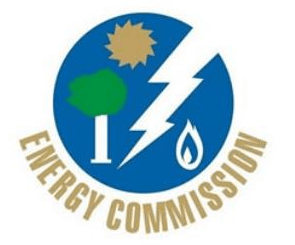Energy Commission certifies 14,000 electricians, inspectors nationwide
 The Energy Commission has certified more than 14,000 electricians and inspectors nationwide within 10 years of implementing the Electrical Wiring Programme.
The Energy Commission has certified more than 14,000 electricians and inspectors nationwide within 10 years of implementing the Electrical Wiring Programme.
It has also developed a database to keep records of all registered practitioners and entities and the “Certified Electrician” Mobile App available for download on Apple Store and Google Play Store.
Mr Herbert Krapa, the Deputy Minister for Energy, disclosed this at the launch of the 10th Anniversary celebration of the Electrical Wiring Programme in Accra.
The celebration is on the theme: “Celebrating a Decade of Regulating the Electrical Wiring Industry in Ghana.”
The Electrical Wiring Regulations 2011, (L.l. 2008) was passed by Parliament into law to ensure the safety of livestock and other property from hazards that arise from the presence of distribution and use of electrical energy.
He said the application would enable the public to have easy access to all certified professionals nationwide, also report misconduct of practitioners and ensured that all facilities connected to the National Grid complied with the Electrical Wiring Regulations.
He said as part of the Commission’s mandate to ensure the safety of life and property, it had for 10 successful years, implemented the Electrical Wiring Regulations, developing guidelines for the certification of electrical wiring practitioners.
The Deputy Minister said the electrical wiring industry was largely perceived as informal and thought to be full of unqualified practitioners, adding that this did not only undermine public trust, but also exposed citizens to the dangers of sub-standard wiring in homes and workplaces.
“The days of practitioners using crude methods to test their own work, due to expensive electrical wiring test instruments are fast fading,” he added.
He said the implementation of the electrical wiring regulations had increased professionalism in the practice of electrical wiring by electricians.
He said it had also increased the use of Ghana Standards Authority approved electrical cables and accessories, and decreased the spate of fires associated with bad wiring, and because of this, many today feel safe in their homes.
Mr Krapa said the government would continue to work together with the Commission and all relevant stakeholders in providing the necessary leadership to deepen the Commission’s mandate in this direction.
Professor Ebenezer Oduro Owusu, Board Chair of Energy Commission, said the Commission intended to implement some measures in the next few years to improve the implementation of the Electrical Wiring Regulations in Ghana.
These include the development of Standards and Codes to facilitate the promotion and use of Electric Vehicles in Ghana and increased collaboration with the National Insurance Commission to ensure that facilities wired by certified practitioners attract lower premiums since their risk factors would have been drastically reduced.
He said the Commission would also continue training of practitioners to ensure they are abreast with latest technological trends and developments and would construct a Practical Examinations Centre for the assessment of Certified Inspectors.
Others are the revision of the Electrical Wiring Code to facilitate enhanced electrical wiring practice in Ghana; enforcement of the Electrical Wiring Accessories Regulations; and increased publicity on the entire Electrical Wiring Regulation implementation and enforcement effort.
Mr Oscar Amonoo-Neizer, Executive Secretary of the Energy Commission, said electrical wiring properly done was essential for the maintenance of national infrastructure.
He said even though the Commission had certified more than 14,000 Professionals nationwide to engage in electrical wiring, “we cannot relent on our efforts to ensure anyone who carries on wiring on installations is duly trained and certified by the undertake that activity.”
As part of the year-long celebrations, there will be an anniversary lecture, sensitisation workshop for practitioners and a Corporate Social Responsibility projects.
Source: GNA
